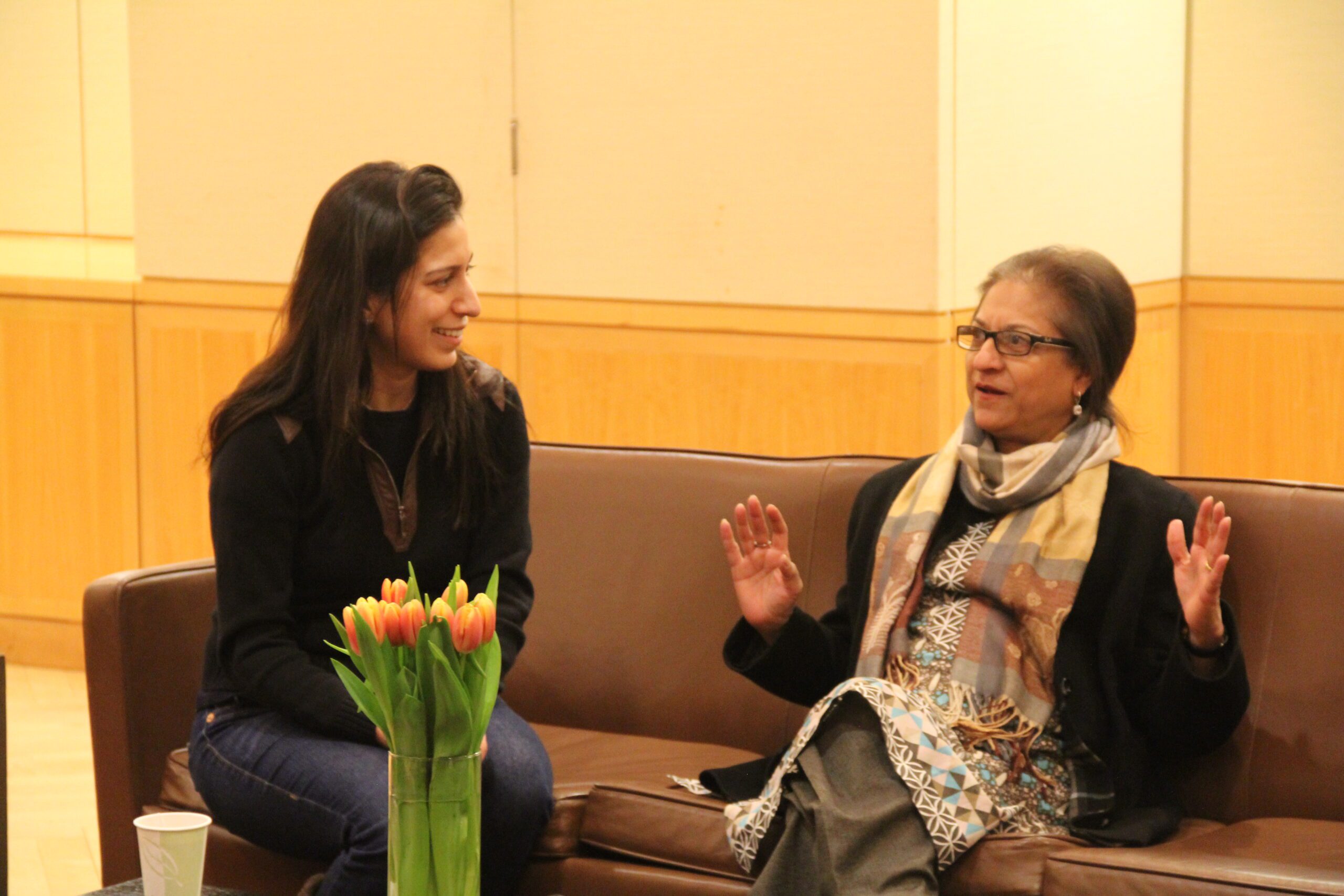By Mariam Chughtai, Ed.D. ’15, SAI Pakistan Programs Director

Mariam Chughtai and Asma Jahangir at Harvard in 2015
The auditorium was full as Asma Jahangir, who passed away this week at the age of just 66, delivered the Harvard Asia Center’s prestigious, annual Tsai Lecture in March 2015. Pakistani speakers at Harvard are quite rare, perhaps because anyone from the country who is consequential is, typically, also highly controversial.
Asma Jahangir was of course both, but the difference was that even those who disagreed with her respected her fearlessness. She was Pakistan’s conscience.
I remember first seeing her when I was a freshman at Kinnaird College, an all-women institution in Lahore, Pakistan. I sat at the very back of a large hall packed with young women, waiting to hear the great Asma Jahangir speak. We sat in awe of her bravery and most of us were also afraid for her life.
There were intense social debates taking place in Pakistan at the time, centred around a case she had taken on; her client was an adult woman who was asserting the right to marry without the consent of her guardian. She was facing down the religious right, which is not something many people attempt in Pakistan. Her fight went all the way to the Supreme Court of Pakistan, which eventually ruled in favor of a woman’s unilateral right to marry whomever she wanted without need for permission.
Asma Jahangir took on many of these challenges, any one of which would be enough to gather a lifetime of deserved plaudits. She was not only the most prominent human rights lawyer; she was the most successful.
In a society where women are sentenced to be gang-raped and honor killings are justified in the name of culture, Asma Jahangir relentlessly pursued new laws to protect women.
She represented the most persecuted victims in front of the Supreme Court. At a time when anti-blasphemy laws are frequently invoked to settle personal disputes and persecute minorities, Asma Jahangir represented Christians who were being held unfairly in jail, helping them get a fair trial.
She fought to restore children to the custody of their mothers. She challenged the state to fulfill its responsibility of providing education, health and employment to poor children, instead of trying them indiscriminately as juvenile offenders.
Her life was frequently in danger; she stood up to fearsome Pakistani regimes in the service of human rights and democracy. Tear-gassed, beaten and imprisoned, she led fellow activists from the Women Action Forum in the first public protest against military dictator General Zia in 1983, demanding equal rights for women.
There were death threats, assassination attempts and bullet holes in her office, but she continued to persevere right till the end.
I’ve often wondered how people like Asma Jahangir charge ahead despite these seemingly formidable odds. Religious political extremists labelled her anti-state and anti-Islam, stigmatizing her in the eyes of many. But in her struggles, you find a deep calm, anchored in the perpetual pursuit of justice.
Here is a text message that I received in the wake of her untimely death. To me, this embodies her essence:
aur jab jahan’num kay farishtay
fatwa-farosh molviyon ko
seekh maen pero kar
aag par bhoon rahay hon gay
tou aik divani aurat
kala coat pehan kar
khuda ki adalat maen
aen-e-asmani ki shik Ghafur-ur-Raheem kay tehat
gunah-garon ki bakhshish kay liay
dalael day ge
wohi Asma Jahangir ho ge
when angels
roast mullahs
on skewers
in hell
this same mad woman
in a black coat
will appear
before the lord
petitioning
for clemency
for the holy sinners
